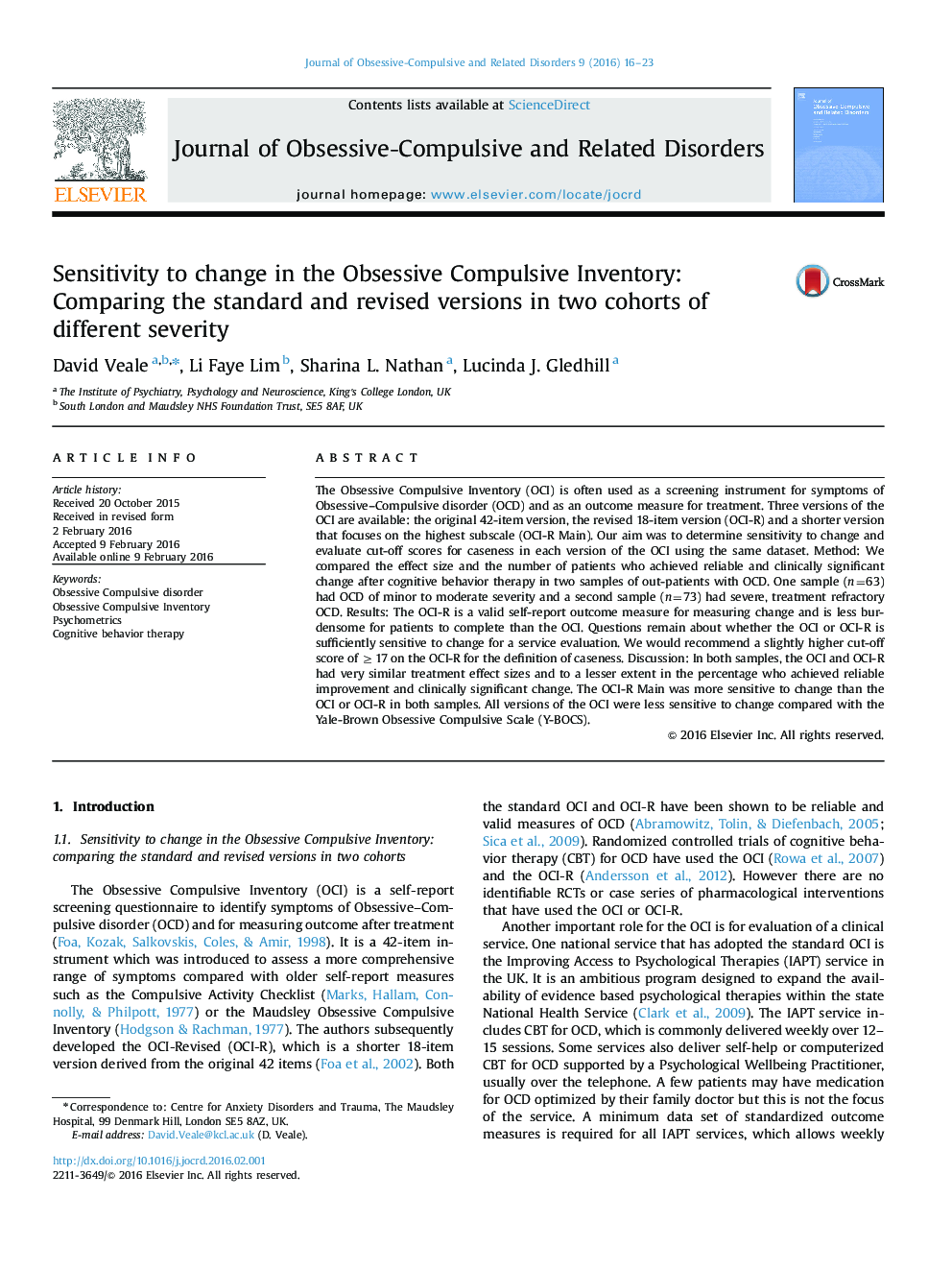| Article ID | Journal | Published Year | Pages | File Type |
|---|---|---|---|---|
| 912183 | Journal of Obsessive-Compulsive and Related Disorders | 2016 | 8 Pages |
•There are 3 versions of the OCI, each varying in length: OCI, OCI-R and OCI-R Main.•Our aim was to determine sensitivity to change in each version using one dataset.•Cohorts of either minor to moderate OCD, or severe treatment refractory OCD.•The OCI and OCI-R had similar effect sizes; OCI-R Main was more sensitive to change.•Problems exist with the definition of caseness in the OCI-R.
The Obsessive Compulsive Inventory (OCI) is often used as a screening instrument for symptoms of Obsessive–Compulsive disorder (OCD) and as an outcome measure for treatment. Three versions of the OCI are available: the original 42-item version, the revised 18-item version (OCI-R) and a shorter version that focuses on the highest subscale (OCI-R Main). Our aim was to determine sensitivity to change and evaluate cut-off scores for caseness in each version of the OCI using the same dataset. Method: We compared the effect size and the number of patients who achieved reliable and clinically significant change after cognitive behavior therapy in two samples of out-patients with OCD. One sample (n=63) had OCD of minor to moderate severity and a second sample (n=73) had severe, treatment refractory OCD. Results: The OCI-R is a valid self-report outcome measure for measuring change and is less burdensome for patients to complete than the OCI. Questions remain about whether the OCI or OCI-R is sufficiently sensitive to change for a service evaluation. We would recommend a slightly higher cut-off score of ≥17 on the OCI-R for the definition of caseness. Discussion: In both samples, the OCI and OCI-R had very similar treatment effect sizes and to a lesser extent in the percentage who achieved reliable improvement and clinically significant change. The OCI-R Main was more sensitive to change than the OCI or OCI-R in both samples. All versions of the OCI were less sensitive to change compared with the Yale-Brown Obsessive Compulsive Scale (Y-BOCS).
